VW's hometown: 'We won't be the next Detroit'
- Published
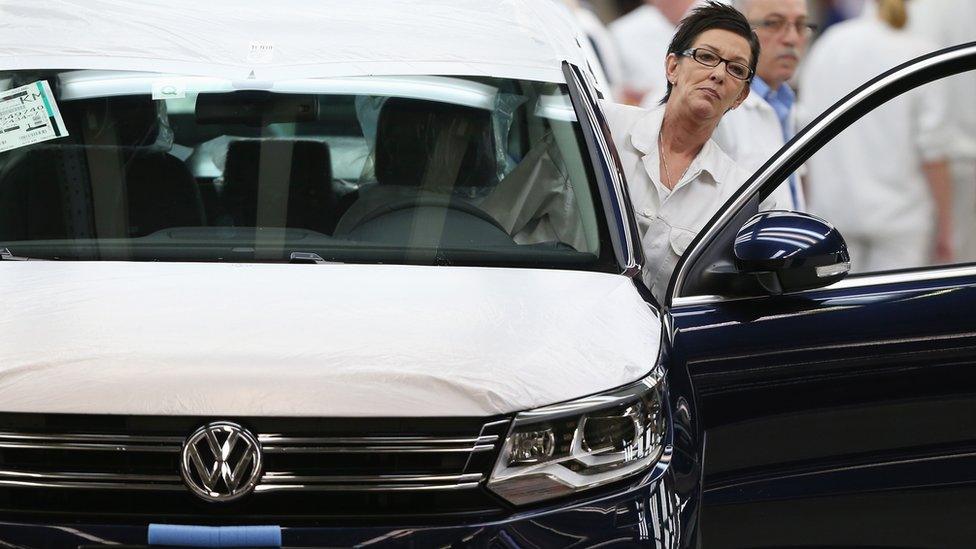
The VW car plant in Wolfsburg is the biggest in the world
Wolfsburg is VW city. It is home to the carmaker's headquarters, something that is immediately obvious when you arrive at the train station - there are newly minted cars stacked up on freight wagons heading off to be sold.
When you step out of the train station, behind you are the chimneys and cooling towers of the factory, along with a big blue gleaming VW logo. This is a city built around a factory - and it is one of the wealthiest in Germany.
So when the news broke that VW had admitted to rigging diesel emissions tests in the US, it was greeted with more than just passing interest. It was the talk of the town - in the bars at night and the bakeries in the morning.
The good citizens of Wolfsburg know that when VW sneezes, their town catches a cold. And this admission, it emerged pretty quickly, was more than just a sneeze.
The company says 11 million cars have been fitted with the "cheat device". It's not yet clear how much the scandal will cost it in terms of fines, sales and brand image. So far, it's put aside 6.4bn euros (£4.6bn; $7bn) but most analysts estimate the costs to be much higher.
'We stand by Volkswagen'
"Shocked" is how most people I speak to here describe their reaction to the news. And for many of them the next thought is a fear for their jobs.
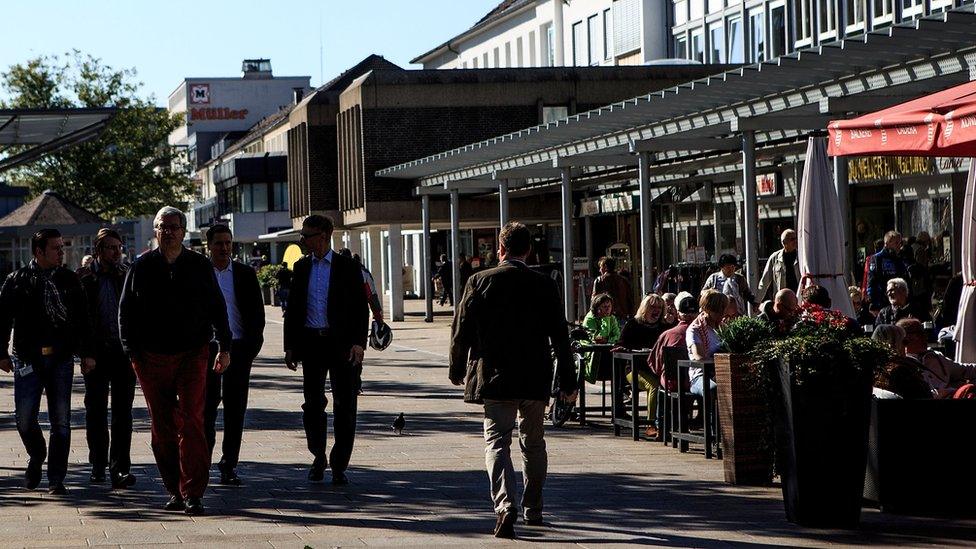
People who work at VW "earn well - and they're loyal," says local journalist Andre Pichiri
Of the 125,000 people who live here, nearly everyone is somehow connected to VW, either by working for the firm, having a family member who does, or working for a business supplying VW.
VW's workers at the company are understandably not keen to talk to me - or the press in general. Many feel the media has portrayed the company too negatively and they are mostly very loyal to the company.
In a smoke-filled bar (they still exist in Germany) one group of young men I approach mutter something about "verboten" - although VW insists its workers are allowed to talk to the media.
Another worker is more open and tells me his shifts have been reduced this week as a direct result of the scandal. However, he goes on to say that he is more motivated than ever to make even better cars.
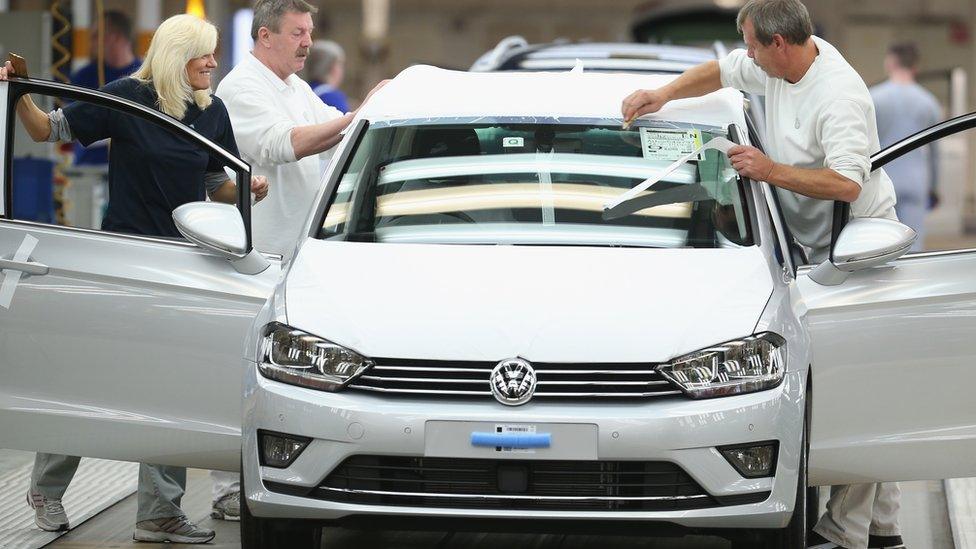
People in Wolfsburg are loathe to criticise VW - publicly at least
VW has a lot to worry about - but not it would seem about the commitment of its workers. A private Facebook group has even been started up by VW employees called "We stand by Volkswagen - whatever happens". It now has more than 26,000 members, with car stickers to match.
A local journalist, Andre Pichiri from the Wolfsburger Allgemeine Zeitung, says there have been three responses to the story; first absolute shock this could happen, then disappointment that a firm many of them helped to build up for decades could do such a thing, and now a certain solidarity amongst themselves in which they don't want to criticise VW - publicly at least.
"VW has always been more than just a company," he says, explaining that it supports schools, nurseries, all sorts of charities and sports clubs.
"People who work there earn well - and they're loyal."
DFB-Pokal champions
Of course the biggest sports club that the company supports is the local football team, VfL Wolfsburg. Currently they are top of their group in the champions league and are fourth in the German Bundesliga.
The team won the 2015 DFB-Pokal final, beating Borussia Dortmund 3-1 - but on Tuesday were knocked out of the current cup by Bayern Munich; wholly-owned by Volkswagen, they are basically part of the company.
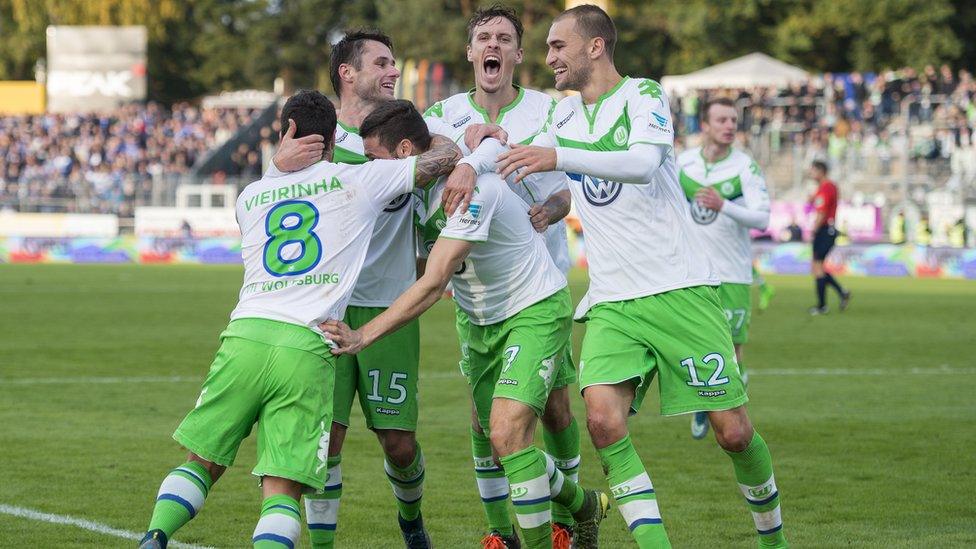
VfL Wolfsburg is wholly owned by Volkswagen
And like every other part they are watching the effects of the scandal and any ensuing spending cuts very closely.
The stadium itself is right next to the factory and the sporting director, Klaus Allofs, meets with the company once a week, and speaks on the phone with executives every two or three days.
"Everybody knows if there's a problem with Volkswagen it will cause problems for the city," says Mr Allofs.
"We were really shocked and surprised [about the scandal]... it was a difficult period, very negative, but I think [the mood] is getting better now."
The team has already postponed plans for a new youth training centre.
Local pride
But while Mr Allofs says he can't rule out further knock-on effects on the football team, he says that VfL Wolfsburg are simply too important for the company and the city for the impact to be too severe.
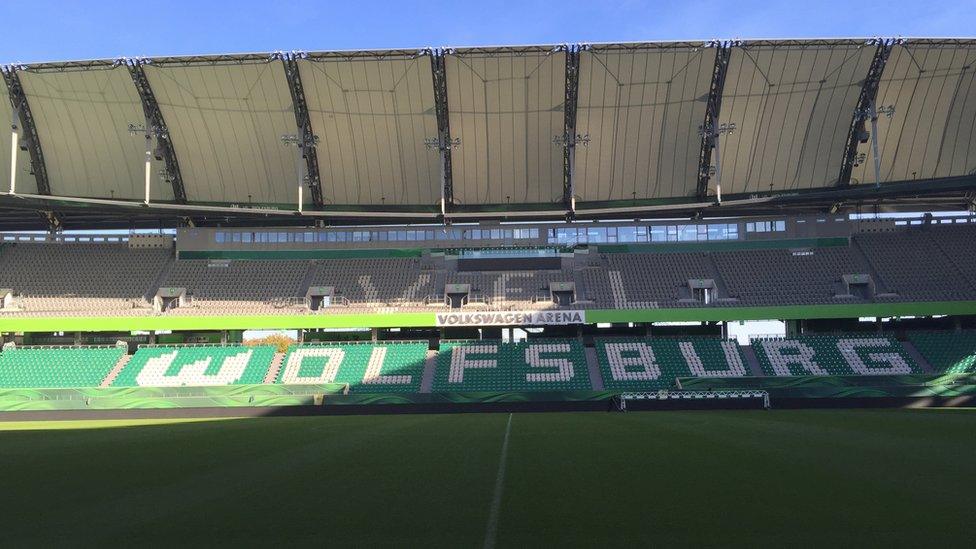
The team has already postponed plans for a new youth training centre
In the grand scheme of things, he says, they are a small part of its overall costs - German media estimates are in the region of 100m euros (£72m; $110m) a year.
He remains ambitious for the team and argues that it's important that that doesn't slip.
"We have to make something to be proud of. That's even more important now than before. If you are less proud of VW, then you can be more proud of football team," he says.
Spending freeze
Pride is a word that the local mayor, Klaus Mohrs, also uses to describe the situation.
The city as a whole is dependent on VW's taxes, he says, and warns that there will an impact on spending - the budget has already been frozen.
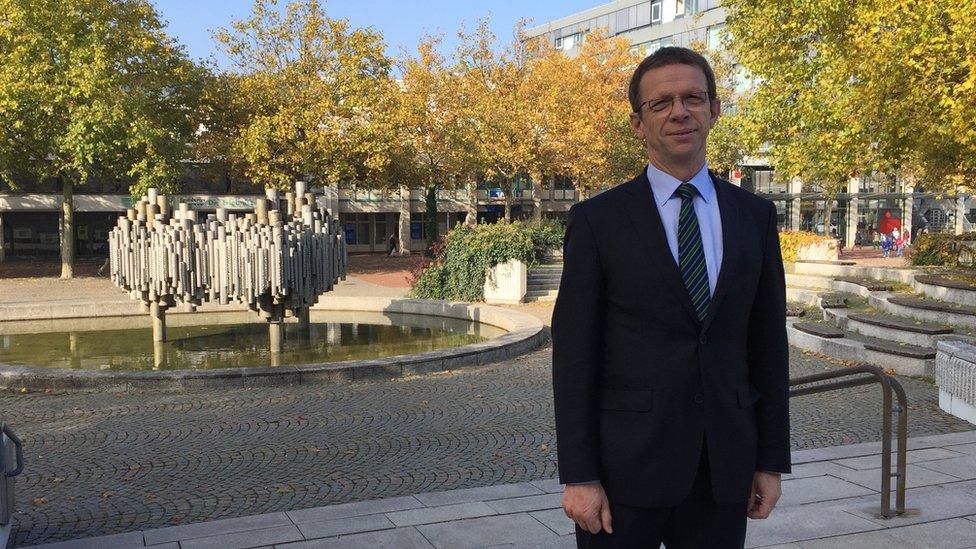
Wolfsburg's council has already introduced some spending curbs, says mayor Klaus Mohrs
"Housing and kindergartens are areas that won't be affected... but perhaps we won't invest as much on street care, or renovate certain sport halls, and possibly increase the entrance prices to our swimming pools," he says.
But Mr Mohrs adds that even with spending cuts the city is in a better position than many others in Germany.
He, too, talks of the solidarity that has emerged among the people of Wolfsburg and is optimistic that both the company and the city will come through the crisis.
"One thing I'm sure of, we won't be the next Detroit," he concludes.